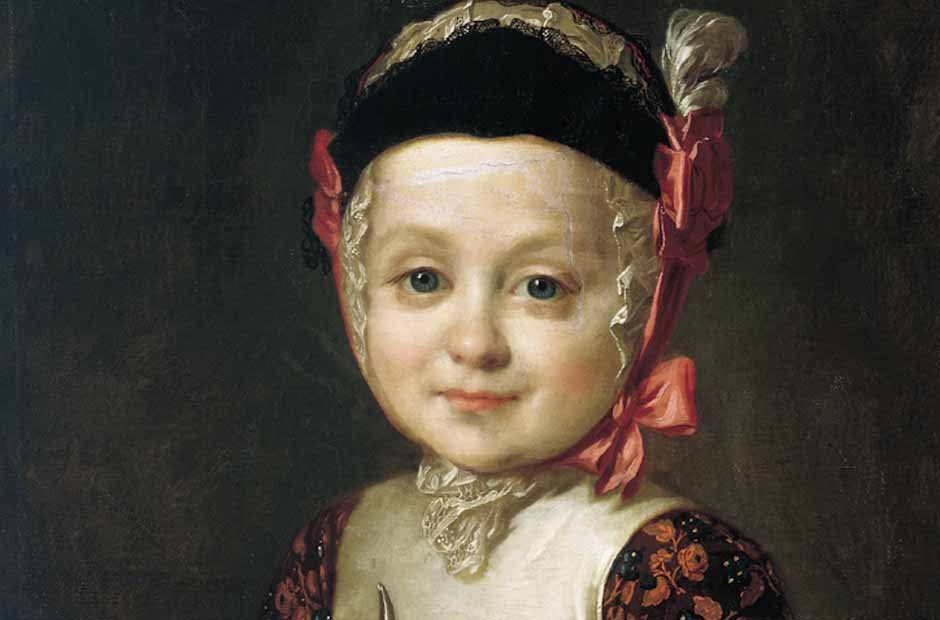Count Alexei Grigorievich Bobrinsky was born on April 11, 1762, in Saint Petersburg, Russia, to Empress Catherine II of Russia and her lover, Count Grigory Orlov. As the illegitimate son of the empress, Alexei’s origins were shrouded in intrigue and scandal. Catherine, who was famously known as Catherine the Great, was married to Peter III of Russia when she began her affair with Orlov. Their relationship lasted for several years, and during that time, Orlov became a powerful figure in the Russian court, and Catherine gave birth to their son, Alexei.
Despite his illegitimate birth, Alexei was raised in the imperial court and received a good education. He was taught to read and write in French, German, and Russian, and was also trained in riding, fencing, and other sports. Although he was not officially recognized as a member of the royal family, he was given the title of “Count” and was afforded certain privileges due to his mother’s position.
As Alexei grew older, he became aware of his unique position in society and the expectations that came with it. He was well aware that he would never be able to inherit the throne, but he was determined to make a name for himself in other ways. He began to explore his interests in politics and military affairs, and over time, he became a respected figure in Russian society. His life was not without its challenges, however, and he faced many obstacles as a result of his illegitimate birth.
Despite these challenges, Alexei Bobrinsky went on to build a successful legacy for himself and his family. He was a prominent figure in Russian society during his lifetime, and his impact on Russian history can still be felt today. In the following sections, we will explore his life and achievements in more detail.
Table of Contents
Life and Education in the Shadow of Royalty
Alexei Bobrinsky’s early life was spent in the shadow of his mother’s royal status. Despite being an illegitimate child, he received a privileged upbringing and was given many opportunities that were not available to most people at that time. However, he was not able to live a completely normal life, as he was always aware of his unique position in society.
Alexei was educated by private tutors, and his education was overseen by his mother. He was taught several languages, including French, German, and Russian, and was also given a good grounding in subjects such as mathematics, history, and geography. Additionally, he received training in riding, fencing, and other sports, which were considered important skills for a gentleman.
Although he was not officially recognized as a member of the royal family, Alexei was still treated as a member of the court. He was often present at official ceremonies and events, and he was even allowed to attend meetings of the Imperial Council, where he was able to observe the political process in action.
Despite the advantages of his upbringing, Alexei was always aware of the limitations imposed by his illegitimate birth. He was not able to inherit the throne or hold high political office, and he was often overshadowed by his legitimate half-brother, Paul, who would later become Emperor of Russia. Nevertheless, he was determined to make the most of the opportunities that were available to him.
As he grew older, Alexei became increasingly interested in politics and military affairs. He began to associate with other influential figures in Russian society, and he was even appointed to various military and administrative positions. In the next section, we will explore Alexei’s marriage and family, which were an important part of his legacy.
Marriage and Family: Building a Legacy
In 1796, Alexei Bobrinsky married Anne of Ungern-Sternberg, a Baltic German noblewoman. They had five children together: Aleksey, Vasily, Pavel, Mariya, and Nikolaos. Their marriage was a happy one, and Anne was known for her intelligence, wit, and charm.
Alexei’s family was an important part of his legacy, and he took great care to ensure that they were well-educated and well-connected. His sons were educated at the best schools in Europe, and his daughters were trained in the arts of diplomacy and social graces. His son Aleksey would go on to become a respected military commander and diplomat, serving under several Russian emperors.
Alexei’s family also played a significant role in the social and cultural life of Russia. His daughter Mariya was a well-known society hostess, and his granddaughter Catherine was a famous writer and poet. Additionally, his descendants would go on to play important roles in Russian society and politics for many years to come.
Despite his achievements, Alexei’s illegitimate birth continued to cast a shadow over his family. They were never fully accepted into the royal court, and they often faced discrimination and exclusion from certain social circles. Nevertheless, they remained a close-knit and supportive family, and their achievements are a testament to their resilience and determination.
Political and Military Endeavors
Alexei Bobrinsky was known for his political and military endeavors, which were an important part of his legacy. Although he was not able to hold high political office due to his illegitimate birth, he still managed to make significant contributions to Russian society.
In 1789, Alexei was appointed to the rank of Colonel and given command of the Bobrinsky Hussar Regiment. He was a skilled military commander and led his troops in several successful campaigns, including the capture of the Turkish fortress of Ochakov in 1788. His military prowess earned him the respect of his peers, and he was promoted to the rank of Major General in 1798.
In addition to his military career, Alexei was also involved in politics. He was a member of the Imperial Council and served as a senator for many years. He was known for his liberal views and his advocacy for reform. He supported the abolition of serfdom and the establishment of a constitutional monarchy, although these reforms would not come to pass until many years after his death.
Despite his political and military achievements, Alexei was never fully accepted into the highest echelons of Russian society. His illegitimate birth continued to be a source of shame and stigma, and he was often excluded from certain social circles. Nevertheless, he remained committed to his ideals and worked tirelessly to promote his vision for a more just and equitable society.
Death and Lasting Impact on Russian History
Alexei Bobrinsky died on July 2, 1813, in Bogoroditsk, Russia, at the age of 51. His death was a significant loss to Russian society, and he was mourned by many who had known him.
Despite his illegitimate birth, Alexei had managed to build a successful legacy for himself and his family. He was a respected military commander, a skilled politician, and a champion of liberal reforms. His family was known for their cultural contributions to Russian society, and his descendants would go on to play important roles in politics and culture for many years to come.
Perhaps Alexei’s greatest legacy, however, was his advocacy for social and political reform. He was a champion of freedom and justice, and he believed in the power of the people to shape their own destiny. Although his reforms did not come to fruition during his lifetime, his ideas laid the groundwork for future generations to continue the struggle for a more just and equitable society.
In many ways, Alexei’s life and legacy are a testament to the resilience of the human spirit. Despite the obstacles he faced due to his illegitimate birth, he was able to achieve great things and leave a lasting impact on Russian history. His story is a reminder that even in the face of adversity, it is possible to build a meaningful and fulfilling life, and to leave a lasting legacy for future generations to inherit.










